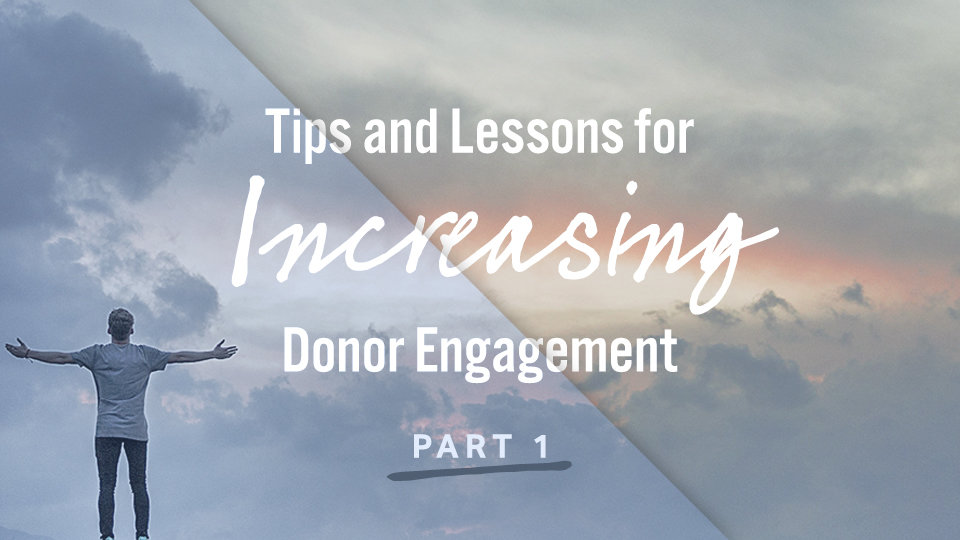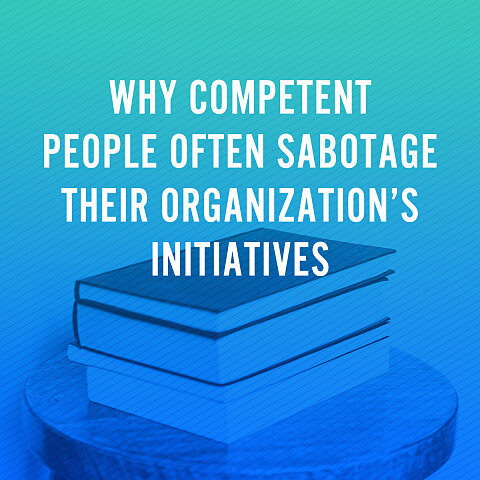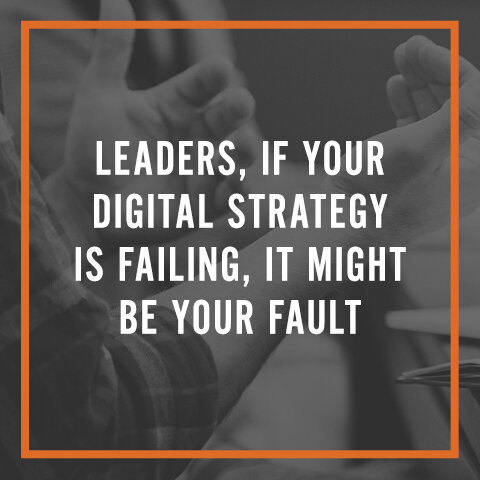6 Tips and Lessons for Increasing Donor Engagement: Part 1
By Pete Wilson
This is part one of the two-part series titled, "6 Tips and Lessons for Increasing Donor Engagement". When you have finished reading part one, continue to part two of this series.
Ok, brace yourself. I’m going to talk about a word that is sure to make you shift in your seat and cringe at the thought of ever talking about it to members of your church or non profit.
Money.
Are you still breathing? Alright good, let’s continue.
While you understand the need to teach about money or be able to have conversations about it, the reality for many pastors and ministry leaders is that giving and stewardship is something that makes us all feel a little uncomfortable. We always worry that the heart of it won’t be communicated due to the giant wall people often throw up for you to somehow climb and overcome in a 30-minute teaching or two-month initiative. As a result, the fear of the inevitable eye-roll at the sole mention of the word often keeps us from talking about it.
Why is this such a big deal? Because big vision requires big resources. You’re going to have financial challenges. If you’re following God’s will, your back will always be against the wall financially and your vision will always be greater than your resources to fund that vision. So, we have to ensure that our vision is set up appropriately with funding, but we will never reach that point if we approach generosity with a 10-foot pole.
I want to share with you several lessons that I have learned throughout my 20 years in ministry about donor engagement and teaching generosity. Most of these lessons were learned and applied as a pastor in a local church but regardless I think you’ll find these applicable for most non profits and ministries. Generosity is life-changing for people. And we are in the business of life change.
I’ll give you the first three lessons in this blog post and follow up with the rest later this week. Check back on Thursday for more.
1. Tell your giving story.
My friend was recently at a dinner with a man who headed up a large ministry that works with churches and stewardship. He asked him, "What's the primary predictor of whether any particular church will be generous?" We thought he'd respond with an answer about what stewardship program they used or how often generosity was taught. It was none of those.
The number one predictor of a generous church, he said, is whether or not it has a generous pastor.
So, tell your story. Show them how you have put this concept into action in your own life. I’ll give you a few examples I have used when teaching about giving:
- I talk about how my parents taught me to give at an early age and that a comment from my 5th grade Sunday School teacher left an imprint in my life that put me on the path to generosity.
- I tell them about how we’re teaching our kids to tithe.
- I tell them about how my family for the past seven years has added 1 percent each year to our tithe.
When people hear our honest stories, it can help lower their guard and resistance to the message. It allows them into the personal aspects of our lives to see that we are doing the very thing we are asking them to do.
2. Don’t automatically assume that people don’t want to hear about money.
I’m not sure where we came up with this crazy idea. Money is a major part of people’s lives. There’s no getting around it. Money affects so many things:
- Where we live
- What we drive
- How long and where we work
- What type of vacations we take
- How much we pay in taxes
So, basically everything. Why shy away from one of the most significant struggles faced by your people? The world is constantly talking about money. Today’s media outlets–Internet, TV, radio & newspaper–ensure that you can’t get far without hearing about money. And do you know why they talk so much about money? It’s called “ratings,” and they know that people want to talk about it.
My friend Dave Ramsey has the third largest nationally syndicated radio talk show, with more than 545 affiliates nationwide, speaking to more than 8 million listeners, weekly. There are two reasons why it’s so popular. First, Dave is really incredible at what he does. Secondly, people want to hear about money. And yet often as pastors and ministry leaders, it’s the only thing we apologize for teaching on. We don’t apologize for teaching on grace, spiritual gifts, forgiveness, evangelism, or the vision of the church. Just about money.
And listen, I totally get it. It is understandable why non profit leaders are uncomfortable to talk about all this “money” stuff. There have been a handful of leaders who have given the rest of us a really bad name by manipulating what scripture has to say for their own personal benefit. But, that’s a lousy excuse for failing to disciple people in this area. Bottom line?
We're more interested in cultivating people that love us than we are people who love generosity.
We can’t be more concerned with being “loved” than we are about being “loving”. And one of the most loving things we could do for our churches and ministries is to teach them biblical stewardship. When I began in ministry 20 years ago, I’d often shy away from the money subject. However, I now realize that giving is as much a part of discipleship as reading the Bible and prayer. I can’t shy away from it, but I also must approach the subject with tact and grace.
3. Don’t assume that people already know how to be biblical stewards.
One of the things Jesus never actually said was, "By the way, now that I've introduced grace into the equation, no one needs to worry about tithing anymore." But do you know what question I get asked most often by Christians in the church when it comes to stewardship? "Isn't tithing an Old Testament concept? Aren't we under grace now?"
This question more or less assumes that it was only post-Pentecost that the church discovered that God is the owner and that people are stewards. It implies that the legalistic old Israel thought all they had to do was check the "I tithed" box and then got to spend the rest however they wanted.
What if tithing is actually one of God's greatest gifts to us? Some people argue that since tithing is found in the Old Testament, we can discard the whole concept. Jesus, however, was quite clear that he did not come to abolish the law but to fulfill it. In the early church, no one's attitude was, "Thank goodness grace takes us out from under the Law—now we don't have to tithe anymore!” The early church was so overwhelmed by God's grace and generosity, and it went far beyond the tithe.
Tithing was never intended as a way to "pay our debt to God." It has always been a training exercise to cultivate a generous and God-centered heart. Tithing is to our possessions what the Sabbath is to our time—a guideline that points beyond itself to the truth that every moment, inch and scrap of our lives come from the hand of God, and will be returned to God.
So, it’s our job to accurately communicate all of these things. However, if we are to truly help these people create new generous lifestyles, it is most effective to equip them with more than just these concepts. I have encountered a lot of “ah ha!” moments when we provide them with what I call “on ramps”. On ramps are ways to ease people into something new. Let’s take a highway, for example. You can’t drop a stopped car in the middle of a highway with the other cars speeding by at 80+ miles per hour. We have a ramp that allows us to increase in speed as we feel comfortable, get steered in the direction we need to be, and then ultimately find our place amongst the other cars at the appropriate speed. The same goes for generosity. Find small ways to help people gradually understand the concept of giving before expecting a 180 degree shift in their thought process. It will come.
One of the things I’d often do is just encourage people to become percentage givers. Many people never become regular givers because the idea of 10 percent just seems too overwhelming; in that case, I’d just tell them to pick a percent. It might be two percent or six percent; just give them a place to start easing their way up the ramp toward generosity.
Money does not have to be a taboo subject; in fact, it’s a critical way that we help carry out God’s mission together. Check back on Thursday for more tips and lessons on how to increase donor engagement in your ministry, church or non profit.
Stay tuned for part two of this series!














